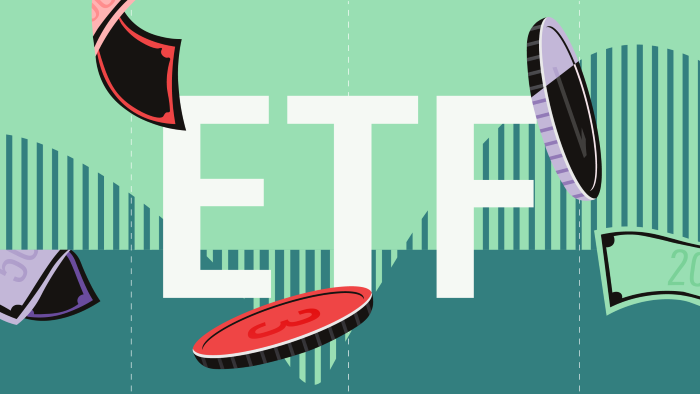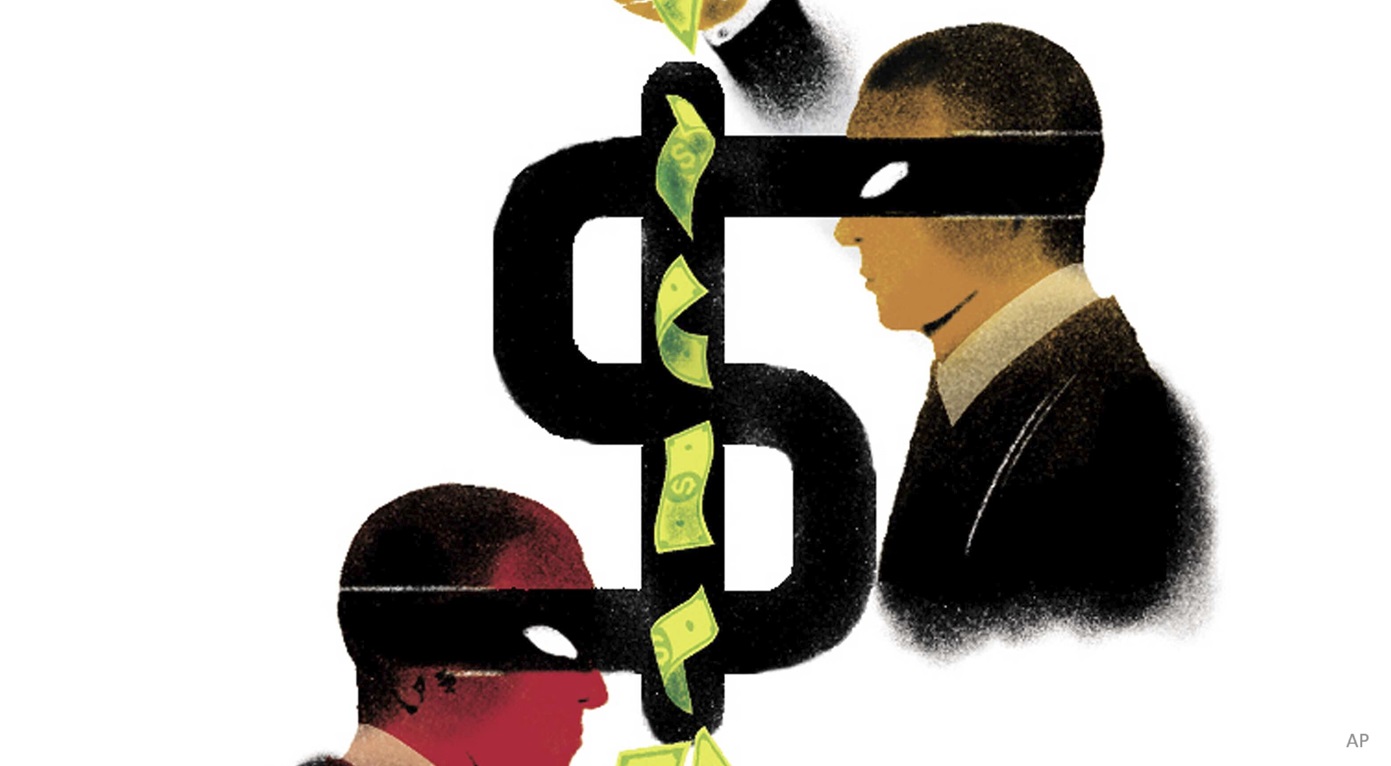Rudy Luukko: Hi, I'm Rudy Luukko with Morningstar. With me today is Tyler Mordy, he is Co-Chief Investment Officer of HAHN Investment Stewards. HAHN is a global manager of portfolios that use exchange-traded funds as their underlying investments. Tyler welcome to Morningstar.
Tyler Mordy: Great to be here Rudy.
Luukko: ETFs are often associated with passive investing, but of course HAHN is very much an active manager. Can you briefly describe your investment discipline?
Mordy: Absolutely Rudy. So it's been kind of interesting how the ETF evolution has evolved here in a sense that a lot of people have thought that ETFs have proliferated because of their low cost or because of their tax efficiency and those attributes of the actual wrapper itself. Our idea at the firm is that, the paradigm shift to the ETFs is that they have colonized the world's asset classes and they have sort of supplied exposure to all these different asset classes. So you can get exposure to gold, you can get exposure to Chinese bonds. So at our firm what we say is we don't pick stocks for our clients. We pick themes, trends and the big picture reviews out there in the world economy, and the world financial markets. So that's a good way to look at it, and clients I think understand that.
Luukko: Here's an investing theme from the front pages and top of the newscast all around the world, the plunging price of oil. What are investors to make of this?
Mordy: That's a big trend Rudy. So I think in order to understand the plunge in oil prices you have to look to China. And China grew from 2002 to 2011, GDP growth rates of over 10%. So what we are seeing now is demand is curtailing there, because the Chinese economy is morphing from more of an export-driven economy to more a domestic-driven economy. And so what we see today is a plunge in oil price and there is a lot of winners and there is lot of losers.
Typically the losers are the commodity-exporting countries -- Russia, Brazil and so forth -- and the winners are the commodity-importing countries. So a lot of countries -- let's take India as an example -- they have a high import ratio for oil prices. And that feeds right into their inflation figures. So India has been running inflation very high for a long time, primarily driven by the oil price. Now what we've seen is the inflation figures are coming down there, and interest rates are coming down there, and it's wonderful for asset prices there. So lot of winners and losers and again for our clients and us as a firm taking a big picture view of the world economy, we've been able to put in positions that have been incredibly profitable over the last 12 months here, as oil has declined.
Luukko: Without getting into necessarily the names of the individual ETFs. What type of asset classes have been a play for you on the state of the oil market?
Mordy: Right. I mean well coming back to home I mean of course the one thing would be to underweight Canadian equities and that's something that sort of, half the battle of money management is avoiding losers. The India stock market would be another one, the Chinese stock market. So anything that has a high import ratio and any country that's benefiting from lower inflation figures and of course again back to the avoidance, avoiding countries like Russia and Brazil. And we think this is a multiyear trend simply because commodity markets are long-trending markets -- they are like currencies, so they tend to go for a long, long time. So our view would be that the $50 oil price is more likely a ceiling than a floor for the next several years here.
Luukko: At HAHN of course you have portfolios that are able to invest depending on the objective for the client across potentially any asset class in the world, and so the state of the fixed-income markets here in Canada for instance, the recent surprise cut in the Bank of Canada. How is something like that and interest rate trends generally affecting your portfolio strategy?
Mordy: Well it's a big factor Rudy, because one of the primary positions we've had over last several years here, is that you should underweight Canadian assets. And what we see in Canada particularly, is this strong homeland bias; it's particularly acute in our country. There are several reasons for that, so when you look at objectives for the clients, say an income objective, you can no longer rely just on the domestic bond market or even domestic assets. So when you go further afield into these asset classes, global fixed income and so on and so forth, you get a very, very different return profile, and of course as the currency, the loonie, depreciates the assets in the international zone appreciate and we've got a strategy called the Global Income Focus and that's been one of the key drivers that's the currency. So it's been wonderful for our clients.
Luukko: I'm sure it has given what the Canadian dollar has done, but now we're in a situation where the Canadian dollar is about $0.80 vis-a-vis the U.S. and so clearly it's become a lot more expensive for a Canadian investor to invest outside the country. And so my question is, is the current level of the Canadian dollar going to at some point influence that "diversify outside Canada" theme.
Mordy: That's an interesting question. What I would say is that the analysis that we had when the Canadian dollar was overvalued, when it was near par, that relied on classical macroeconomic theory -- relative inflation trends between two countries -- and that gets a little bit technical. But the bottom line with currency markets like commodity markets is that, again, they are long-trending markets. So currencies tend to really overshoot on the upside. You could argue that when it went to $1.10 it was very overvalued, egregiously overvalued actually. Now as we are getting closer to fair value which we think is around the $0.80 mark it will probably continue to go down and just overshoot on the downside as well. So we're not yet ready to change our position on the Canadian dollar, but certainly it will be something that we are watching over the next several years.
Luukko: Generally a number of worries that investors seem to have in addition to the commodity prices, the currency issues and sluggish economic growth… are there any good news stories out there for investors. I know you touched on a couple of them earlier on in our talk here.
Mordy: Absolutely there is a lot of good new stories and I think the investment environment, the climate right now, the psychology is really driven by bulls and bears. The bulls are kind of emboldened by central bank policies and excess liquidity, and the bears are more demoralized by slow economic growth and that familiar post-war cycle not coming to the fore.
I mean since 2008 we've seen a very, very different market environment and a lot of folks have gotten things wrong. The forecasts have been totally off. So the good news story I think Rudy is that in 2013 the emerging markets for the first time crossed over in terms of their overall economic footprint: they are larger than the developed markets. So most of these slow-growth, low-interest-rates, government manipulation -- trends that the bears cite -- are still housed in the developed markets. In the emerging markets you've got favourable demographics, you don't have big debt bubbles, and that's more than 50% of the world.
So what we have said as a firm now is it's impossible not to be a global investor. You just have to do that and we see that through the interconnectedness of the world and so forth. We are certainly not in the pessimistic camp, we're encouraged by the world economy and we see lots of opportunities ahead.
Luukko: Fascinating stuff Tyler. Thanks very much for coming today. And thank you for watching. For more on investing and personal finance please keep coming back to Morningstar.ca.











:quality(80)/cloudfront-us-east-1.images.arcpublishing.com/morningstar/Q3KIND5VXRCNHHH6JQHCCYBSSA.png)








